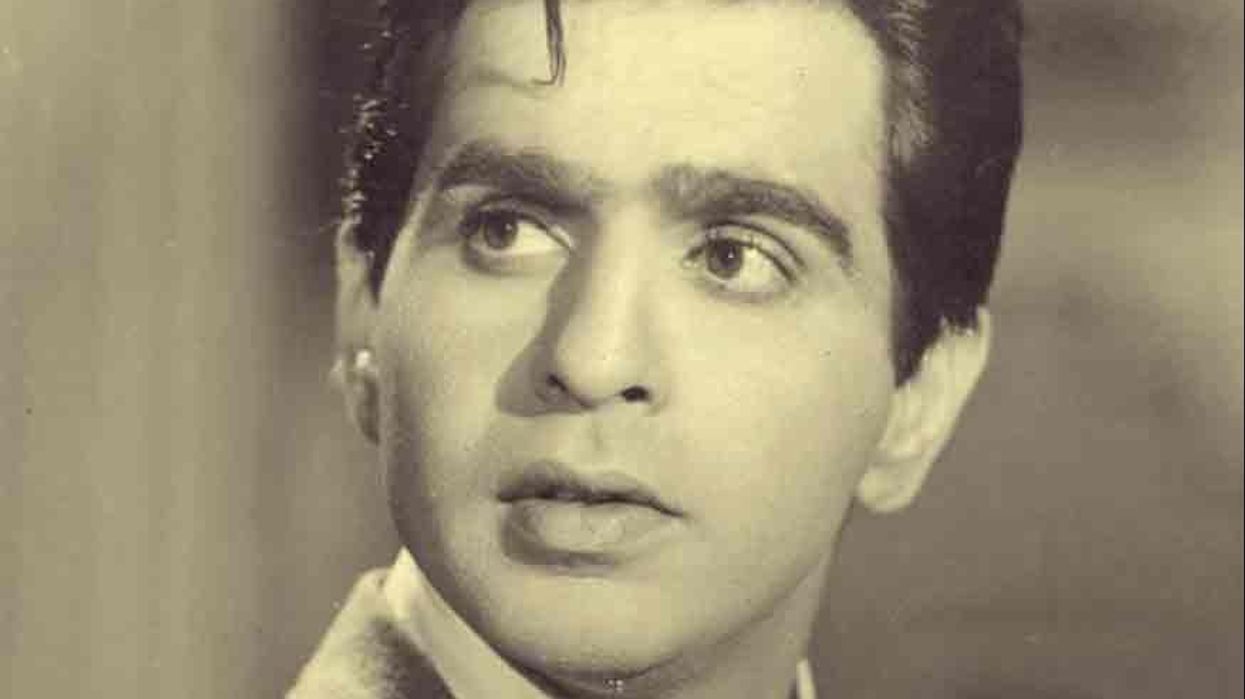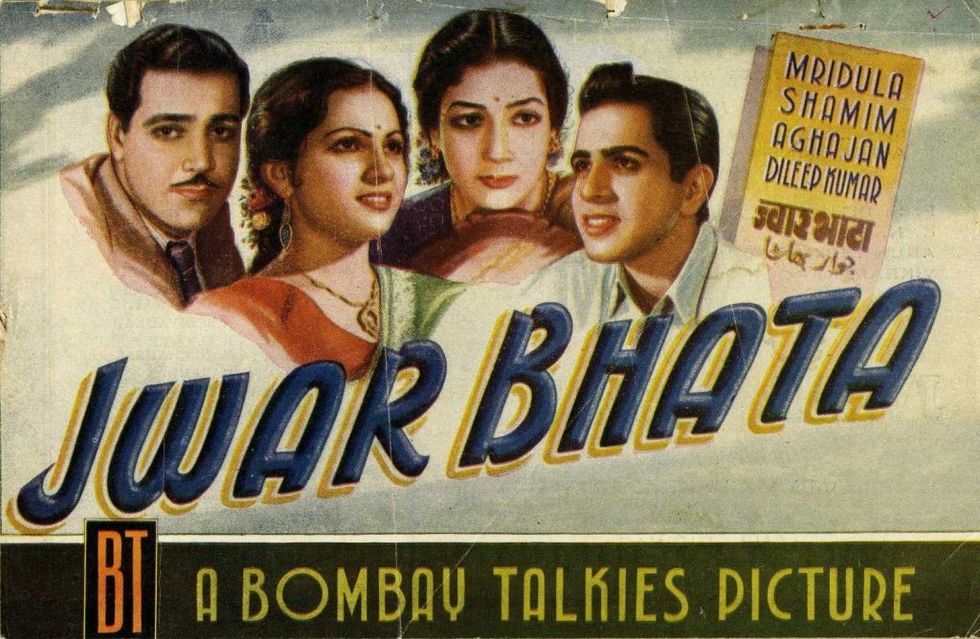Bollywood legend Dilip Kumar passed away at a Mumbai hospital aged 98, after a prolonged battle with illness.
An extraordinary journey saw him rise from very humble beginnings to become Hindi cinema’s greatest and most influential actor. It all began in the Kissa Khwani Bazaar area of Peshawar in British India where he was born on December 11, 1922, as Mohammad Yousuf Khan to his fruit merchant father Mohammad Sarwar Khan and his wife Ayesha Begum. Growing up in a large family, the introverted youngster wasn’t studious, but was curious and would roam around open spaces alone. One of 12 children, the young boy was well-loved and would call his father Aghaji.
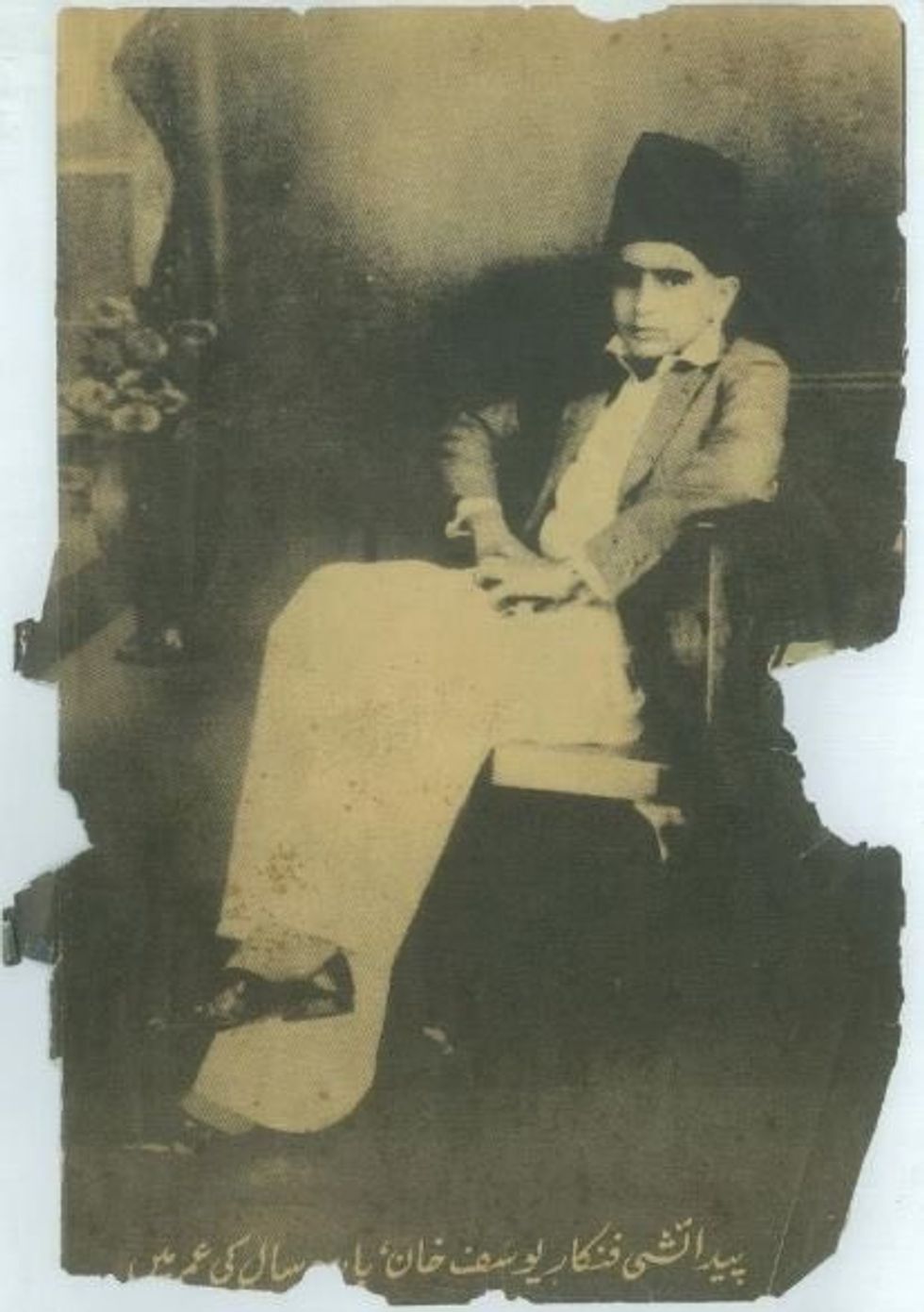
With news that a World War was imminent, his father ventured to Bombay to look for business opportunities, but soon felt lonely and took the decision to shift the entire family there.
He rented an apartment near the bustling Crawford market and set up a wholesale fruit selling business nearby, which began to prosper.
By college age, the teenage Yousuf Khan had learned English and was such a great athlete that he could have become a sportsman. After a disagreement with his father, the determined young man moved to Pune and started working in an army canteen. By now World War 2 had broken out and Yousuf returned to Bombay to seek new opportunities and started a pillow selling business, which failed. Then a chance encounter at a railway station with an old acquaintance from college, named Dr Masani, changed the course of his life.
Dr Masani was going to legendary film studio Bombay Talkies, which was now headed by cinema icon Devika Rani and asked the unemployed Yousuf to come along in case there was any work there for him, including odd jobs. The A-list actress was suitably impressed with the handsome young man and surprised him with a question that would change the course of his entire life. “Do you want to become an actor,” she said and offered him the princely sum of Rs 1,250 a month, which he couldn’t make in a year. The surprised young man confessed he had no experience in the field, but she was adamant he had star quality and signed him up. One of those who saw potential was the studio’s biggest star Ashok Kumar, who would become like a big brother to him.
Devika Rani gave Yousuf Khan the screen name Dilip Kumar and launched him as a hero with the Bombay Talkies produced film Jwar Bhata (1944). The film didn’t do well, but the studio cast him in further films like Pratima (1945) and Milan (1946). By now he had immersed himself in the technical aspects of acting and would learn by watching the work of great Hollywood icons like James Stewart. Dilip Kumar finally found fame with romantic drama Jugnu (1947) opposite reigning Bollywood queen Noor Jehan. The following year he found further success with powerful dramas Mela (1948) and Shaheed (1948).
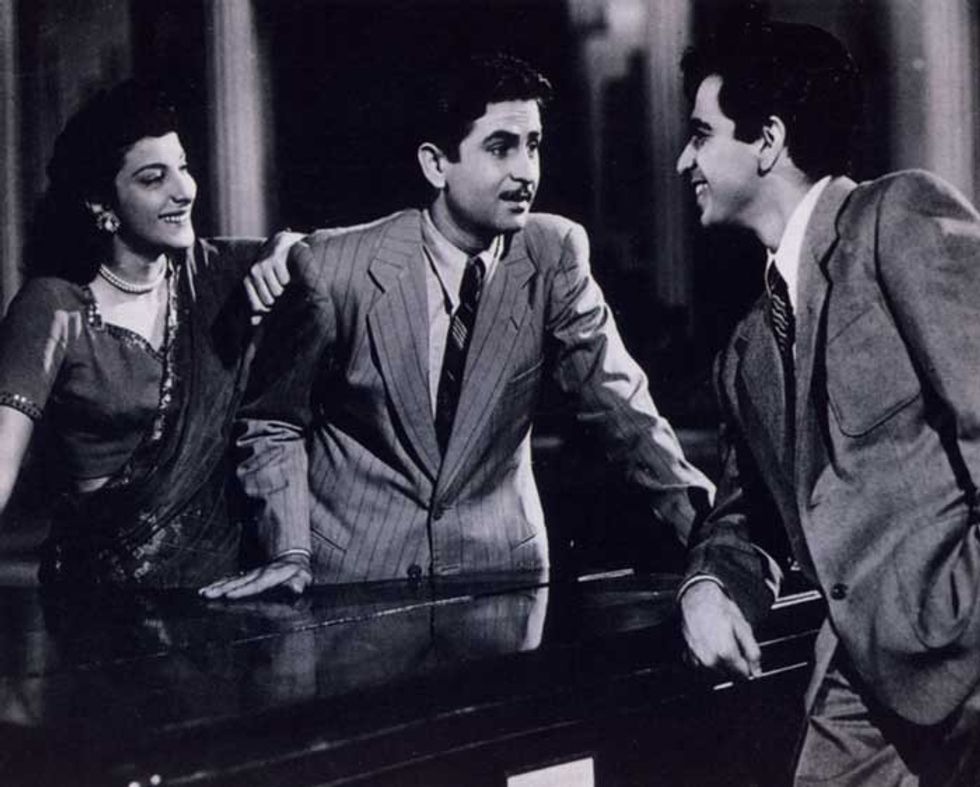
Then he starred alongside rising star Nargis and childhood friend Raj Kapoor in legendary love triangle Andaz (1949), which would become the highest grossing Bollywood film of all time. It would also turn the three leads into overnight superstars and start an incredible run of hit films for him.
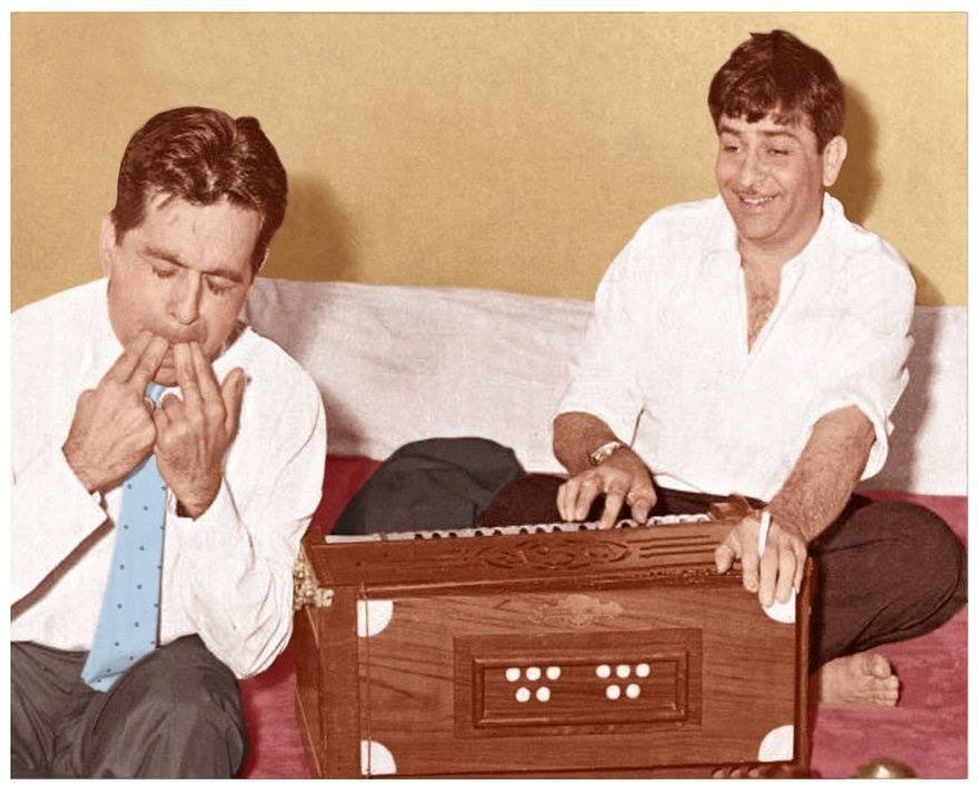
He would break the Bollywood box office record again with Aan (1952), which was India’s first technicolour film. Although the swashbuckler was a huge success, Dilip Kumar would make his name in the early fifties in deeply emotional dramas and would be hailed as the tragedy king. At the first Filmfare Awards, he won Best Actor for Daag (1952), where he portrayed a man on the path to self-destruction. He would win the four out of the first five Filmfare Best Actor awards, with the other wins coming for Azaad (1955), Devdas (1955) and Naya Daur (1957).
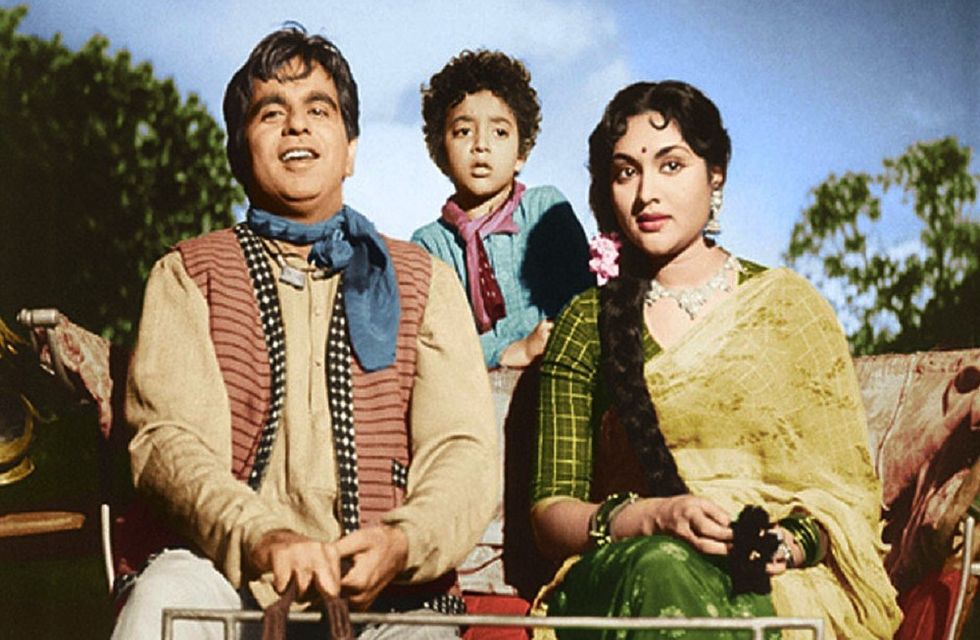
Landmark performances in tragic tales won great acclaim and garnered great success but would take a mental toll on his health. He decided to step away from the space and turned down the lead role in iconic classics like Pyaasa (1957). Whilst his films during the fifties were filled with fantastic performances, many were also path-breaking or tackled taboo subjects. In Footpath (1953), his character sells life-saving medicine on the black market and in the shocking Amar (1954), he played a man who rapes a woman, which is something a frontline hero had never portrayed. Meanwhile, smash hit man versus machine rural drama Naya Daur (1957) and the multi-award-winning reincarnation romance Madhumati (1958) would influence countless films in subsequent decades, right up until the 21st century. He would inject realism into the historic genre with Yahudi (1958).
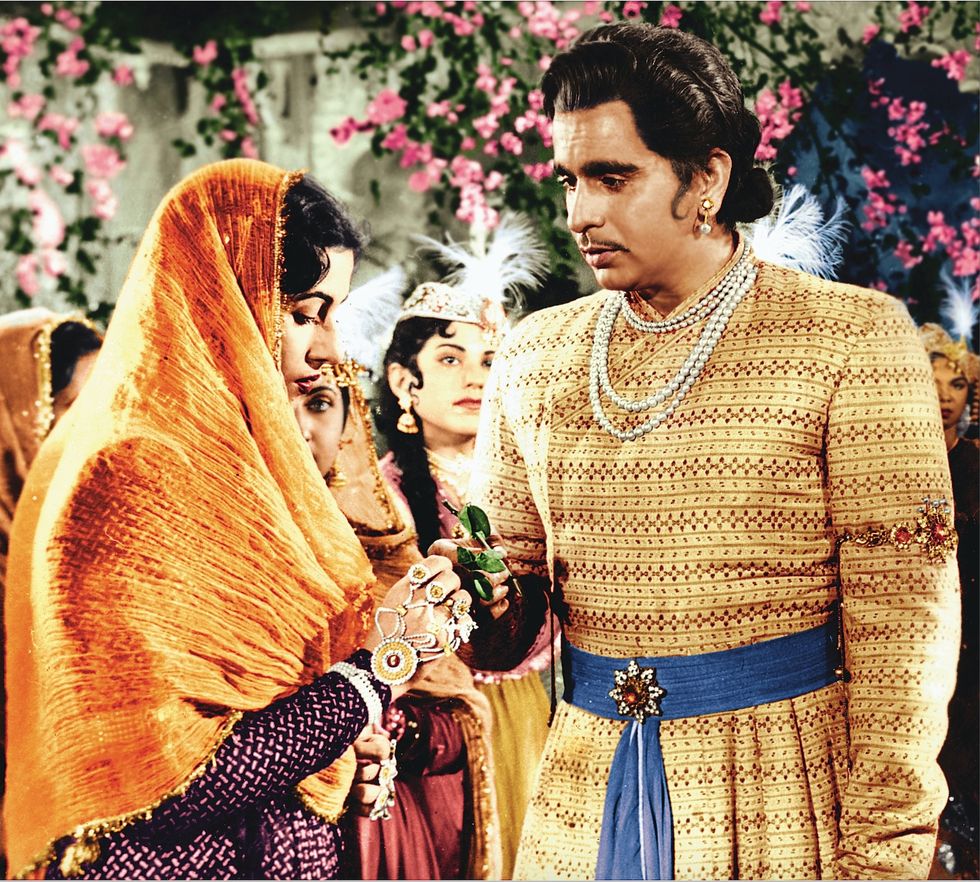
All these fantastic films and perfect performances would lead towards his greatest triumph Mughal-e-Azam (1960). The K Asif directed epic smashed every box office record and raised the bar for Indian cinema to a new level. The majestic movie would be colourised in 2004 and named the greatest of all time in 2013 on the 100th anniversary of Indian cinema. If adjusted for inflation, it is still the highest grossing Bollywood release in history and has one of the greatest ticket sales of any film globally. But a falling out with K Asif meant Dilip Kumar boycotted the lavish premiere of Mughal-e-Azam and didn’t watch the movie until many years later.
By now Dilip Kumar was revered globally, and Hollywood soon came calling, but he turned down international film offers, including Omar Sharif’s Oscar nominated role in Lawrence Of Arabia (1962). He was also considered for a role opposite Elizabeth Taylor on a big budget epic based on the Taj Mahal.
The actor would slow down in the 1960s, but that didn’t stop him from delivering blockbuster hits and brilliant performances like the breath-taking Ganga Jumna (1961), where he portrays a villager forced onto the wrong side of the law. He produced and wrote what would become an all-time classic film.
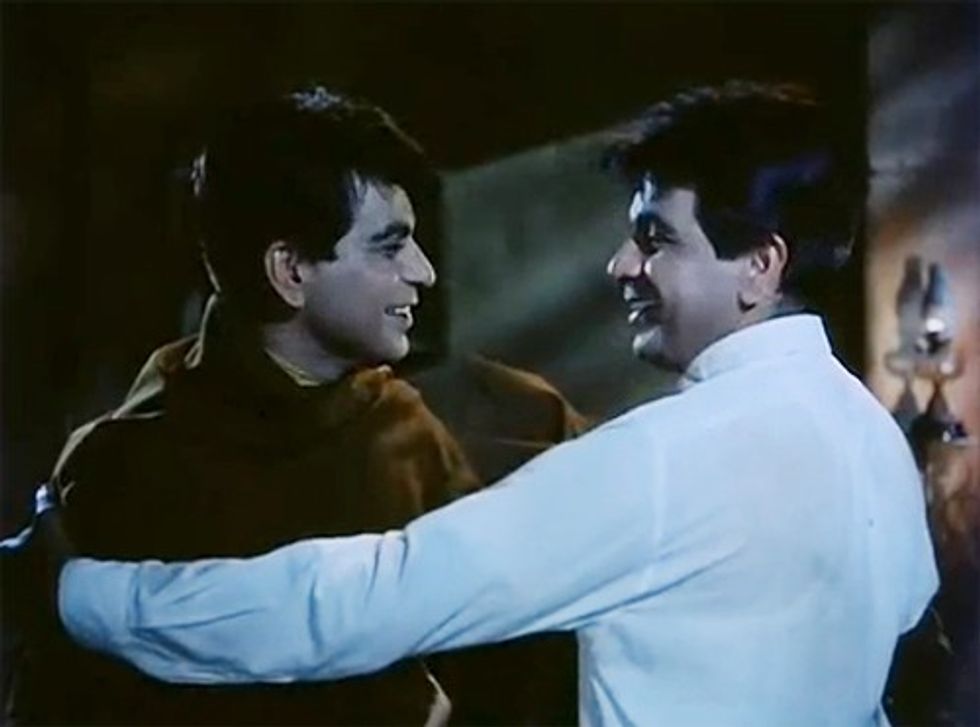
He would win further Filmfare Best Actor awards for political drama Leader (1964) and iconic comedy Ram Aur Shyam (1967), where he plays identical twins with opposite personalities. There would be Filmfare Best Actor nominations for Dil Diya Dard Liya (1966), which was an adaptation of Emily Bronte’s classic novel Wuthering Heights, Aadmi (1968) and Sunghursh (1968). By now he had starred opposite the greatest leading ladies from the golden era of Hindi cinema and gave many legendary filmmakers their defining films.
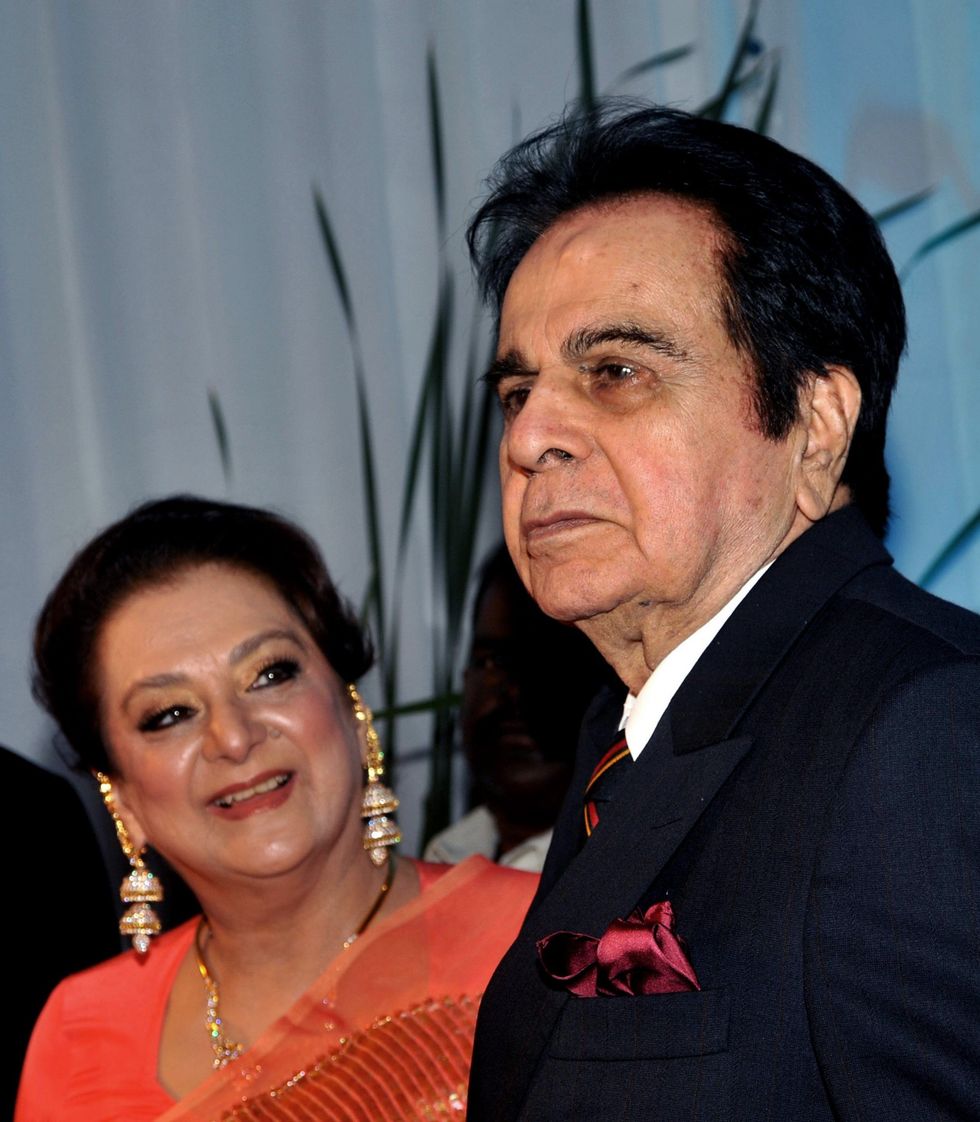
In 1966, the 44-year-old megastar surprised everyone by marrying 22-year-old actress Saira Banu and they remained together until his death.
By the seventies, Dilip Kumar slowed down and after playing a triple role in Bairaag (1976), he decided to step away from the screen. Five years later, he made a stunning return by headlining mega-budget multi-starrer Kranti (1981), which would be the highest grossing Bollywood movie of that year and start a run of memorable character-driven performances.
The following year he starred opposite Bollywood’s biggest star Amitabh Bachchan in police drama Shakti (1982) and won another Filmfare Best Actor award for his performance as a devoted police officer on a collision course with his criminal son. He also headlined multi-starrer Vidhaata (1982), which would become the highest grossing film of that year. His film Mashaal (1984) won him further praise, but also helped turn newcomer Anil Kapoor into a big star. The legendary cinema icon then explored the action genre by headlining mega-budget multi-starrer Karma (1986), which became the biggest Bollywood hit of that year.
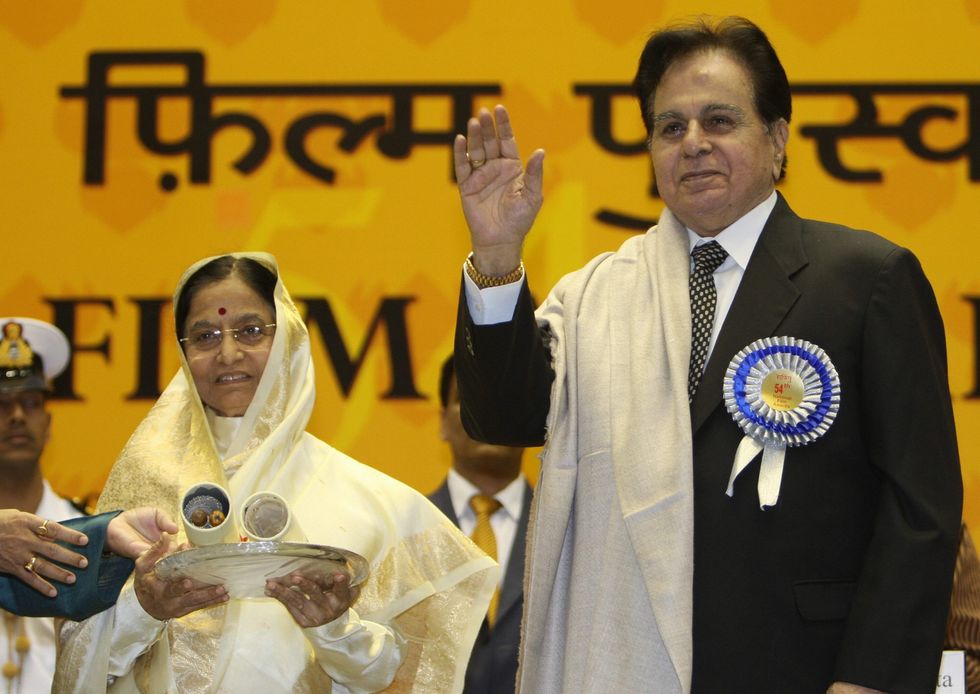
His last big success would be as the powerful patriarch in the Romeo and Juliet inspired Saudagar (1991). He was given Indian cinema’s highest honour, The Dadasaheb Phalke Award in 1994 and after a final appearance in Qila (1998), Bollywood’s greatest actor retired. He received the prestigious Padma Bhushan and Padma Vibhushan from India, and Pakistan state honour, the Nishan-e-Imtiaz. In 2007, Indian president Pratibha Patil presented him with a Lifetime Achievement award at the 54th National Film Awards Function.
He turned down many attempts to bring him out of retirement and remained the most revered figure in Hindi cinema until his death. Generations of actors who followed in his giant footsteps like Dharmendra, Manoj Kumar, Amitabh Bachchan, Aamir Khan and Shah Rukh Khan openly admitted to being inspired by him. Although Dilip Kumar is gone, fans will keep his light shining bright through the incredible body of work he left behind.
